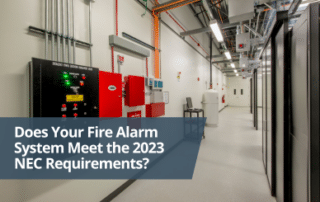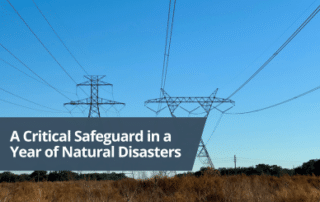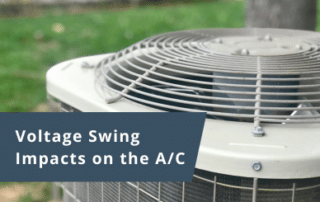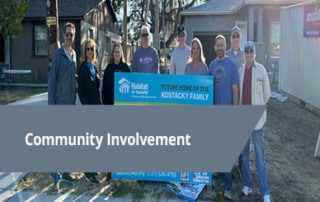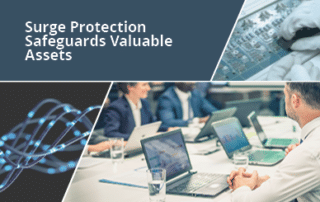Read the DITEK Blog for the Latest Information and Viewpoints
The DITEK Blog includes current information, opinions and suggestions for a wide variety of surge protection topics. Browse our blogs, and if you have an idea for a new topic that would push the industry further, please let us know!
Does Your Fire Alarm Meet the New Code 2023 NEC Requirements?
Surge Protection Now Mandatory for Fire Alarm Systems Fire alarms are an essential safety feature in any building, alerting occupants to the presence of smoke or fire, of course. But an alarm system can only protect you if it’s working properly. Did you know that your fire alarm system could silently fail due to an electrical surge? Power fluctuations—often undetected—can damage fire alarm components, rendering them useless when you need them the most. That’s why the 2023 National Electrical Code (NEC) now mandates listed surge-protective devices (SPDs) for fire alarm systems to ensure they remain operational. Why Surge Protection Matters for Fire Alarm Systems Electrical surges happen more often than you think. Whether caused by lightning strikes, utility grid fluctuations, or internal electrical issues, these surges can severely [...]
Why You Need Surge Protection: A Critical Safeguard in a Year of Natural Disasters
2024 has been a year of unprecedented natural disasters, with storms, hurricanes, floods, tornadoes, and wildfires wreaking havoc across the United States. According to the National Oceanic and Atmospheric Administration (NOAA), the country endured two dozen separate billion-dollar weather and climate disasters, with the financial toll of these 24 events exceeding $100 billion. Alongside visible destruction, these disasters bring hidden dangers that many homeowners overlook: damage to the electrical grid and fluctuations in power quality. These powerful weather events reaffirm that one critical safeguard every household and business should consider is surge protection. The Growing Threat of Power Surges Power surges are sudden spikes in electrical voltage that damage electronics and appliances. According to the National Fire Protection Association (NFPA), electrical malfunctions are one of the leading causes [...]
Why Surge Protection is a “Must” Investment for Electric Vehicle Owners
So, you made the leap! You thought about this for a long time. You debated the pros and cons, and then, you finally invested in an electric vehicle. Now, as you drive home from work each day, you smile as you drive past that line of cars at the gas station, knowing your vehicle will plug in, charge at home, and be ready for the commute tomorrow. You’re feeling good about your EV and yourself. Buying the EV was a debate in your household because it was a huge investment—way more than that big-screen TV you bought last year. But now that you’ve made the purchase, you look at it and admire the vehicle’s lines and its color. It sure looks sharp! As you consider all the things [...]
Voltage Swings: How They Can Leave You Hot, Bothered, and Longing for Your A/C
It’s summer. It’s hotter than hot. And you look at that HVAC every day with love and admiration—thankful for modern-day air conditioning. It’s a lifeline for many of us on these blazing hot days and nights. Can you even imagine life without it? Ask anyone whose HVAC failed about that experience. It’s miserable. Most homes are not equipped to cool without an HVAC, and if your system breaks down, you’re in for some long, hot, humid days and nights. This is why you should consider making sure your HVAC is fully protected from damaging electrical events, including the now common voltage swings. What’s a voltage swing? Voltage swings are when the voltage either drops below the normal operating level or it spikes, sending an unexpected surge into an [...]
Whole Home Surge Protection – How It Works, Considerations, & Costs
Look around your home. Have you ever stopped to consider how many items are connected to a power source? Laptops and computers, mobile phones, game systems, TVs, appliances; plus, don’t forget your HVAC system, internet, and home security system. Even in our “wireless” homes, most items are connected in some way to a power supply. We are a society that is more dependent on the electrical grid than ever. That’s why whole home surge protection has become a necessity for homeowners. Whole home surge protection is designed to safeguard all the electrical devices and appliances in your home from power surges. Power surges are sudden increases in voltage that can damage or destroy electronic devices and appliances. These surges can be caused by many factors, including lightning strikes, [...]
DITEK Community Involvement
January 2024 - March 2024 When DITEK was founded by Robert (Bob) McIntyre, he instilled the value of supporting the local community. Today, he’ll tell you, “That’s the thing about a business; find out where you can get involved and how much fun it can be.” Here are some of the organizations we’ve partnered and volunteered with so far this year: Pinellas Education Foundation Evening of Excellence In support of the Pinellas Education Foundation, DITEK sponsored the Evening of Excellence event in January, where our VP of Administration, Melissa, introduced three of the 10 finalists for Teacher of the Year. In total, 130 teachers were nominated, with Gerard Madrinan from Seminole High School being named the Pinellas County Schools 2024 Teacher of the Year. Founded in 1986, the [...]
HVAC Surge Protection – Safeguard Homes, Health, Customers, & Your Bottom Line
The following article was originally published in the HVAC Tactical magazine, spring 2024 issue. Clear here to read the original. Protection for Homes, Health, Customers, & Your Bottom Line Think about the most valuable items in our homes. What’s the first thing that comes to mind? Did you envision your TV, appliances, computer, or other electronics? We all use these items every day, and most people take steps to protect them because who wants to be without a TV, or a refrigerator, or a laptop? Insurance is one way to protect your assets. But there’s another option you should consider as well: surge protective devices (SPDs). Surge protective devices safeguard appliances and electronics from power surges and spikes by limiting voltage surges that occur in the normal electrical [...]
Surge Protection Safeguards Valuable Assets
Insurance. We buy it for protection. For our business, home, car, health, even our pets sometimes. It’s a proactive investment to safeguard our most valuable assets. But what about your electronic and digital assets? Nearly everything these days is connected to the electrical grid—your computers, communication and entertainment devices, your fire protection system, not to mention an array of appliances. Are you being proactive to protect those assets? Electric surges happen every day and more frequently than you might expect. According to the Electrical Safety Foundation International (ESFI), a typical building experiences more than 150 power surges each month (Deerwester, 2023). That’s an average of four (or more) a day! And over time, all those power hits take a toll on anything connected to the electrical grid— security [...]

